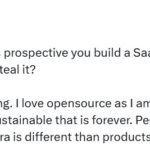DUBAI, UAE — In a groundbreaking development for the cryptocurrency sector, Securitize, a notable player in tokenization, has teamed up with Gauntlet, a decentralized finance (DeFi) expert, to introduce a tokenized version of Apollo’s credit fund. This venture aims to seamlessly integrate real-world assets into the thriving crypto ecosystem. Unveiled on Wednesday, the new offering is a leveraged-yield strategy centered around the Apollo Diversified Credit Securitize Fund (ACRED), which initially launched as a tokenized feeder fund in January, investing in Apollo’s substantial $1 billion Diversified Credit Fund.
The innovative strategy, referred to as the Levered RWA Strategy, will first be available on Polygon (POL), with plans for it to expand to the Ethereum mainnet and other blockchains following a pilot phase. Securitize’s Reid Simon emphasized the goal: to make their securities competitive with stablecoin strategies. As tokenization of real-world assets (RWAs) gains momentum among major financial institutions—including BlackRock, HSBC, and Franklin Templeton—the challenge now is to make these assets functional across DeFi applications.
“This is a strong example of the institutional-grade DeFi we’ve been working to build: making tokenized securities not only accessible but compelling to crypto-native investors seeking strategies that objectively outpace their traditional counterparts,” said Securitize CEO Carlos Domingo.
Currently, tokenized U.S. Treasuries alone have drawn over $6 billion in investment, showcasing a strong interest in blockchain-based asset issuance and settlement. However, the next step for these tokenized assets is to become usable for various DeFi utilities like collateral for loans and margin trading. The Levered RWA Strategy incorporates a sophisticated yield-optimization method called “looping,” where ACRED tokens are deposited into a vault to borrow USDC, which is then reinvested to amplify yields.
This automated process, managed through smart contracts, minimizes the need for manual intervention, while Gauntlet’s risk engine continuously oversees leverage ratios to safeguard users in volatile markets. Paul Frambot, CEO of Morpho, highlighted the transformative potential of DeFi in allowing investors in funds like ACRED to engage in financial strategies that would be unattainable under traditional frameworks. The vault also represents a pioneering use of Securitize’s new sToken tool, designed to retain compliance and investor protections within decentralized environments.

Tokenization and DeFi Innovations in Finance
The collaboration between Securitize and Gauntlet marks a significant development in the integration of traditional finance with decentralized finance (DeFi). Here are the key points related to this initiative:
- Launch of the Leveraged-Yield Strategy:
- Combines tokenized version of Apollo’s credit fund with DeFi.
- Implemented on the Compound Blue lending protocol.
- Focus on Tokenized Real-World Assets (RWAs):
- Increasing interest from major traditional finance institutions (e.g., BlackRock, HSBC).
- Over $6 billion raised in tokenized U.S. Treasuries indicating market potential.
- Innovative Yield-Optimization Technique:
- Utilizes a method called “looping” for enhanced returns.
- Dynamic exposure adjustments based on real-time rates.
- Automated Trading and Risk Management:
- Automates trades using smart contracts, minimizing manual oversight.
- Risk managed by Gauntlet’s engine, which mitigates volatility impacts.
- Introduction of sToken Tool:
- Facilitates compliance and investment protection for token holders.
- Enhances accessibility of tokenized securities to a broader audience.
“This is expected to deliver the institutional-grade DeFi that our industry has promised for years.” – Paul Frambot, CEO of Morpho
These developments could significantly impact readers by:
- Providing new investment opportunities through tokenized assets.
- Allowing access to sophisticated financial strategies previously unavailable to average investors.
- Potentially enhancing the safety and compliance of decentralized finance through regulatory measures.
Tokenizing Real-World Assets: Securitize and Gauntlet’s DeFi Marvel
The latest collaboration between tokenization firm Securitize and DeFi innovator Gauntlet is a game-changer in the rapidly evolving landscape of decentralized finance. Their launch of a tokenized credit fund strategy leveraged by Apollo’s Diversified Credit Securitize Fund (ACRED) is a powerful indication of how real-world assets are increasingly being integrated into the crypto universe. While this initiative marks a significant milestone, it offers unique competitive advantages over similar developments in the realm of tokenized assets and brings with it a set of potential challenges.
One primary advantage of this strategy is its use of the Compound Blue lending protocol, which enhances the yield through the innovative technique known as “looping.” This DeFi-native approach allows ACRED tokens to work as collateral, subsequently borrowing USDC to reinvest in more ACRED tokens, effectively compounding returns. While competitors like BlackRock and HSBC are also exploring tokenization, they may not yet match the sophisticated yield-optimization strategies offered by Securitize and Gauntlet, positioning them ahead in creating appealing investment opportunities for both traditional and crypto-native investors.
However, tokenization is not without its drawbacks. The requirement for accreditation may limit broader accessibility, causing some investors to miss out on these advanced financial products. Moreover, navigating the ever-changing regulatory landscape poses a substantial challenge. Other firms in this space might face difficulties maintaining compliance while trying to implement similar strategies, which could create a competitive advantage for Securitize and Gauntlet in terms of regulatory adherence through their use of sTokens that ensure investor protections.
This innovative tokenization strategy could benefit institutional investors by offering them access to DeFi’s unique financial composability, which provides tools and options previously unavailable in traditional finance. With the ability to adapt and optimize yields dynamically, more sophisticated investors could find value here. Conversely, smaller investors who are not accredited may experience a thorough exclusion, limiting participation and potentially sowing discord in the investment community.
Furthermore, while the advanced risk management capabilities provided by Gauntlet’s risk engine might attract institutional players, it could simultaneously intimidate less-experienced investors. The complexity of leveraging products within DeFi could dissuade individuals who are unfamiliar with these strategies, posing challenges for wider adoption. As these developments unfold, they will be closely watched by entities across the financial spectrum, influencing both traditional and decentralized finance’s future trajectories.

















